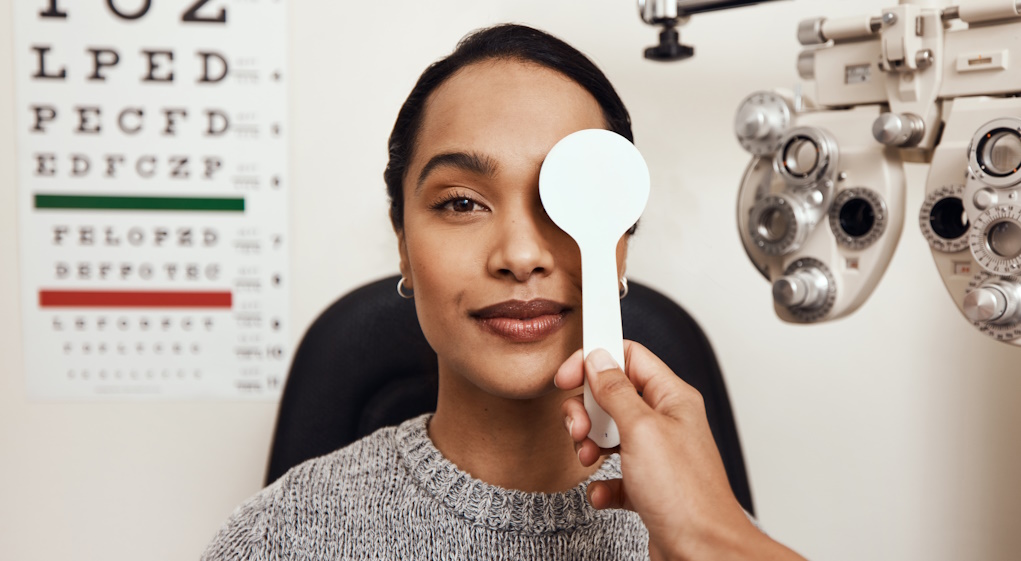Why an Eye Insurance Alternative Can Help Keep You Healthy
Routine appointments with your optometrist benefit more than your eye health. The lens, retina, and optic nerve can hint at other problems that go beyond your vision – sometimes even before other symptoms show themselves.
The eyes serve as windows to the rest of the body, meaning an exam can clue doctors in on what else is happening just below the skin’s surface. When regular screenings are a priority, your optometrist can not only spot early signs of vision issues, but also a variety of systemic conditions, like high blood pressure and diabetes, before they worsen.
The truth is, however, that many people fail to see their eye care provider as often as they should. For too long, patients have been put off by the high out-of-pocket expenses they’re left with at the doctor’s office. This happens as a result of coverage gaps in traditional eye insurance plans, forcing policyholders to shell out more than they bargained for. Fortunately, there are eye insurance alternatives on the market changing the game and getting patients back into optometrists’ chairs.
Read on to learn about the importance of eye exams for your overall health and how the right vision plan can help you access top-notch care.
Health Problems an Eye Exam Can Detect
Experts recommend scheduling a comprehensive eye exam at least once a year with a provider that accepts your eye insurance or vision care benefits. During your appointment, your doctor will perform a series of tests to evaluate your vision and check for any indications of eye disease.
What most people don’t realize is that these tests can uncover dozens of other medical issues. Here are a few examples of health problems an eye exam can bring to light:
-
High blood pressure: Irregular bleeding, twists, or bends from the blood vessels in the back of the eye can tell your optometrist that you’re suffering from high blood pressure. Those with a history of hypertension may experience some swelling in the eye as well.
High blood pressure is also a risk factor in the development and progression of eye conditions including glaucoma, diabetic retinopathy, and macular degeneration.
- Heart disease: The health of your eyes and the health of your heart are directly correlated, meaning that an eye exam can effectively pick up on cardiovascular issues. An imaging method known as optical coherence tomography makes it possible for optometrists to view each of your retina’s distinctive layers and detect microscopic marks that could signify an eye stroke. Although these marks can appear within healthy retinas, they’re much more common in people with heart disease.
- Diabetes: Diabetes has the potential to threaten your eyesight without the proper preventative care. In its early stages, it can reveal itself in the form of microaneurysms, dilated capillaries, and swollen blood vessels that hinder blood flow. Over time, though, this can develop into diabetic retinopathy, which spurs abnormal blood vessels to grow in the retina. Because these blood vessels don’t work well, they can leak fluid or bleed, ultimately leading to serious complications that result in vision loss.
- Cancer: Overexposure to the sun is a known cause of skin cancer, with the eyelid – especially the lower lid – being one of the most affected areas. Melanoma can also be found inside the eye near the iris or muscle fibers around the lens, although this is much rarer. Signs of leukemia, lymphoma, and even some tumors can show up during an eye exam as well. In addition to the initial spot, these cancers can impact the interior of the eye or spread to the ocular structures.
Bear in mind that quality coverage is key to looking after your eyes. In the past, this hasn’t been easy to find. Eye insurance companies promised low monthly premiums, but patients were still stuck with expensive doctor bills after their visit that deterred them from returning.
The good news is that eye care insurance alternatives are making vision services more accessible, so individuals and families can take charge of their well-being in a way that suits their lifestyle.
Why You Should Consider an Eye Insurance Alternative Prior to Your Next Screening
Eye insurance plans are often complex and riddled with hard-to-understand industry jargon. That’s because eye insurance companies didn’t create their policies with the end user in mind.
Vision care plans are specially designed for patients, so you have the flexibility to get the care you need without the fear of unexpected costs. Finally, it’s simple – and affordable – to give your eyes and body the attention they deserve!
For more information about scheduling a screening, reach out to a company reinventing traditional eye care insurance and backed by a nationwide network of best-in-class providers.
